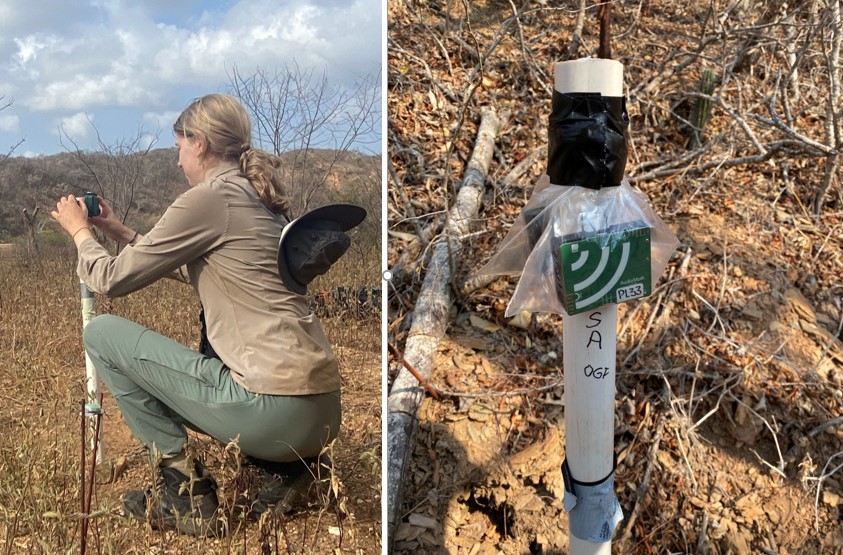Universiteit Utrecht
Tropical forests, are home to over half of the world’s terrestrial biodiversity and are essential for regulating water cycles and providing global ecosystem services. However, these ecosystems face escalating threats, pushing them towards their resilience limit. Natural regeneration is crucial to their survival, and birds play a vital role in this process. By dispersing seeds, birds contribute to accelerating woody plant succession and enhancing vegetation diversity, which, in turn, bolsters the overall value and functionality of the forest. This study, proposes an avian monitoring program in Mexico’s dry tropical forest to dive into the relationship between seed-dispersing bird communities and forest regeneration. Utilizing Automatic Recording Units (ARUs), the program offers several advantages over traditional methods, including reduced time consumption and minimal disturbance to vocal activity. Via automated signal algorithms, this study investigates the community of seed dispersing birds over various stages of forest regeneration. This research, embedded within the broader PANTROP project, seeks to pioneer the application of passive acoustic monitoring as a tool for understanding the dynamics of tropical forest regeneration. By shedding light on the contributions of seed-dispersing bird communities, this study is expected to inform effective conservation and management strategies for regenerating dry tropical forests, thereby promoting robust biodiversity monitoring and sustainable forest management practices.

